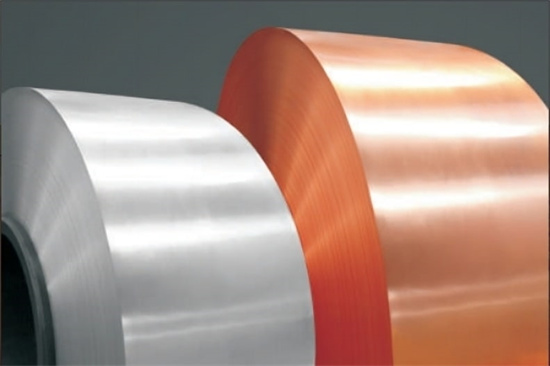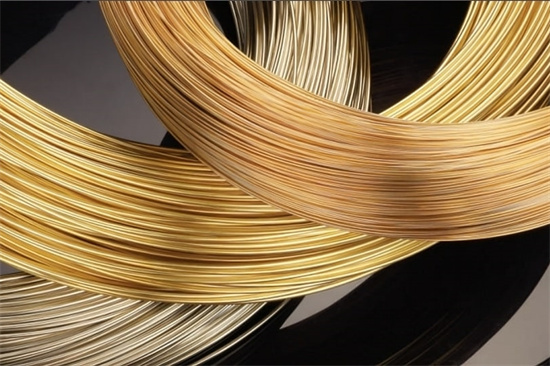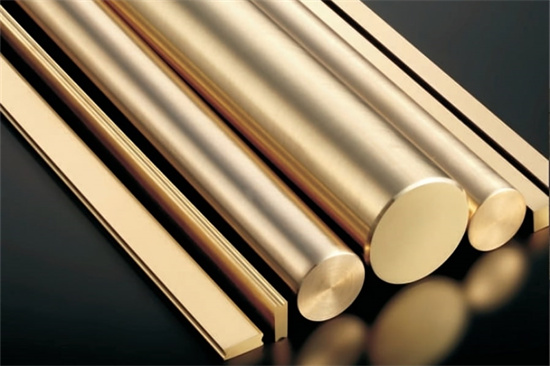


Cupronickel: Den omfattande guiden till pålitliga och långvariga lösningar
Låg MOQ
Tillhandahålla låg minsta orderkvantitet för att möta olika behov.
OEM & ODM
Tillhandahålla kundanpassade produkter och designtjänster för att tillgodose unika kundbehov.
Tillräckligt lager
Säkerställa snabb orderhantering och tillhandahålla tillförlitlig och effektiv service.
Kundtillfredsställelse
Tillhandahålla högkvalitativa produkter med kundnöjdhet i fokus.
dela denna artikel
Innehållsförteckning
Om du någonsin har arbetat med ett projekt som kräver korrosionsbeständighet, duktilitet, och termisk stabilitetvet du säkert att Cupronickel är ett av de mest tillförlitliga materialen inom området. Men vad är det egentligen som gör det så speciellt? Trots att Cupronickel är relativt okänt utanför vissa industrier används det i allt från marin teknik till myntprägling. Dess förmåga att motstå de tuffaste miljöerna och bibehålla sin integritet gör den till en förstahandsval för många tillverkare och ingenjörer.
I denna omfattande guide tar vi dig igenom allt du behöver veta om Cupronickel, från dess sammansättning och egenskaper till tillämpningar, prissättning, och leverantörer. Vi jämför det också med andra material, så att du kan avgöra om Cupronickel passar bäst för ditt projekt. Är du redo att dyka in? Låt oss komma igång!
Översikt
Cupronickel är, som namnet antyder, en legering av koppar och nickel, vanligtvis innehållande små mängder av järn och mangan för att förbättra dess styrka och korrosionsbeständighet. Denna legering är känd för sin anmärkningsvärda motståndskraft mot korrosion i havsvattenvilket gör den mycket lämplig för marina tillämpningar. Dess användningsområden sträcker sig dock långt utanför den marina miljön.
Viktiga egenskaper :
- Motståndskraft mot korrosion: Exceptionell motståndskraft mot havsvatten och saltlake.
- Termisk konduktivitet: Bra värmeöverföringsegenskaper, vilket gör den idealisk för värmeväxlare.
- Duktilitet och formbarhet: Lätt att Form, böj, och maskin.
- Egenskaper för antifouling: Naturligt motståndskraftig mot biofoulingvilket är anledningen till att den används i fartygsskrov och rör för havsvatten.
- Elektrisk konduktivitet: Även om den inte är lika ledande som ren koppar har den fortfarande goda elektriska egenskaper, vilket gör den användbar i elektroniska komponenter.
- Icke-magnetisk: Denna egenskap är särskilt användbar i marina tillämpningar för att undvika magnetisk störning av känslig utrustning.
Cupronickellegeringar graderas ofta baserat på deras nickelinnehåll, som vanligtvis varierar från 10% till 30%. Ju högre nickelhalt, desto bättre är legeringens korrosionsbeständighet, särskilt i marina miljöer.
Typer, sammansättning och egenskaper
Cupronickel finns i flera olika kvaliteter, var och en med sin egen unika sammansättning och sina egna egenskaper. Att förstå dessa skillnader kan vara avgörande när du väljer det bästa materialet för din specifika applikation.
Typer och sammansättning
| Legeringstyp | Koppar (Cu) | Nickel (Ni) | Järn (Fe) | Mangan (Mn) | Primära egenskaper |
|---|---|---|---|---|---|
| CuNi 90/10 | 89-90% | 9-11% | 1.0% | 1.0% | Hög motståndskraft mot havsvattenkorrosion, god formbarhet, utmärkt för marina miljöer. |
| CuNi 70/30 | 65-70% | 29-30% | 0.7-1.5% | 0.5-1.0% | Överlägsen korrosionsbeständighet och styrka, används ofta i värmeväxlare och kondensorer. |
| CuNi 66/30/2 | 65-68% | 30-33% | 1.0-2.0% | 1.0-2.0% | Högre hållfasthet och motståndskraft mot biofouling, perfekt för långvariga marina tillämpningar. |
| CuNi 80/20 | 80% | 20% | – | – | Ger måttlig motståndskraft och styrka, används ofta i mynt och elektroniska komponenter. |
Mekaniska egenskaper
De mekaniska egenskaperna hos Cupronickel-legeringar varierar något beroende på kvalitet och exakt sammansättning. Nedan visas några allmänna egenskaper för de vanligaste Cupronickel-legeringarna.
| Fastighet | CuNi 90/10 | CuNi 70/30 | CuNi 66/30/2 | CuNi 80/20 |
|---|---|---|---|---|
| Draghållfasthet (MPa) | 250-350 | 300-400 | 320-450 | 220-300 |
| Sträckgräns (MPa) | 100-150 | 150-200 | 180-250 | 100-150 |
| Töjning vid brott (%) | 40-50% | 35-45% | 30-40% | 45-55% |
| Brinell-hårdhet (HB) | 75-100 | 100-130 | 120-150 | 70-90 |
| Densitet (g/cm³) | 8.9 | 8.8 | 8.75 | 8.9 |
| Elektrisk konduktivitet | 5-10% IACS | 4-8% IACS | 4-7% IACS | 7-12% IACS |
Viktiga egenskaper
- Motståndskraft mot korrosion: Cupronickellegeringar är särskilt motståndskraftiga mot korrosion i havsvatten och saltlake. Detta gör dem mycket lämpliga för marina tillämpningar som till exempel Avsaltningsanläggningar och skeppsbyggnad.
- Duktilitet och maskinbearbetbarhet: Dessa legeringar är kända för sina utmärkta Formbarhetvilket gör dem lätta att böj, klippa, och maskin till komplexa former.
- Termisk stabilitet: Cupronickel bibehåller sina mekaniska egenskaper även vid förhöjda temperaturervilket är anledningen till att det ofta används i värmeväxlare och pannor.
- Antifouling: Cupronickel har en naturlig motståndskraft mot att fästas av marint liv, vilket är anledningen till att det används i fartygsskrov och rörledningar för havsvatten.
Tillämpningar
Cupronickels unika egenskaper gör att den kan användas inom ett brett spektrum av industrier. Dess främsta fördel ligger i dess motståndskraft mot korrosion i havsvattenmen det används också i elektronik, medicintekniska produkteroch till och med myntprägling.
Vanliga tillämpningar
| Industri | Tillämpning |
|---|---|
| Marin teknik | Fartygsskrov, rörledningar för havsvatten, avsaltningsanläggningar, oljeriggar till havs, kondensorer och värmeväxlare. |
| Elektronik | Kontaktdon, resistorer och termoelement tack vare goda elektriska egenskaper och korrosionsbeständighet. |
| Myntning | Mynt för olika valutor tack vare dess hållbarhet, korrosionsskyddande egenskaper och estetiska tilltal. |
| Hälso- och sjukvård | Medicintekniska produkter och implantat, t.ex. kirurgiska verktyg och proteser, på grund av dess biokompatibilitet. |
| Flyg- och rymdindustrin | Värmeväxlare, rörsystem och komponenter som kräver hög hållfasthet och temperaturtålighet. |
| Kraftgenerering | Rör i ångturbiners kondensorer, kärnreaktorer och andra kraftverkskomponenter som utsätts för havsvatten. |
Marin teknik
Cupronickels motståndskraft mot havsvatten gör det till ett utmärkt material för marina tillämpningar. Oavsett om det är rörledningar för havsvatten på ett fartyg, oljeriggar till havs, eller värmeväxlare i avsaltningsanläggningar fungerar Cupronickel bra i miljöer där andra metaller snabbt skulle korrodera. Dess förmåga att motstå inte bara korrosion utan också biofouling (ackumulering av organismer som havstulpaner och alger) är en viktig anledning till att det används i stor utsträckning i skeppsbyggnad.
Elektronik
Även om Cupronickel kanske inte är lika ledande som ren koppar, erbjuder det ändå bra elektrisk ledningsförmåga samtidigt som den också är korrosionsbeständig. Detta gör den idealisk för elektriska anslutningar, resistorer, och termoelement. Dess icke-magnetiska egenskaper är också en bonus i applikationer där magnetisk störning kan vara problematiskt.
Myntning
Cupronickel används också vid tillverkning av mynt. Dess Hållbarhet och motståndskraft mot missfärgning gör den perfekt för att tillverka mynt som tål att slitas över tid. Många länder, däribland Förenta staterna, använder Cupronickel i sina cirkulerande mynt.
Specifikationer, storlekar och standarder
Cupronickellegeringar finns tillgängliga i en mängd olika former, inklusive ark, stavar, rör, och kablar. Dessa tillverkas för att uppfylla specifika branschstandardervilket säkerställer att materialet fungerar som förväntat för en viss applikation.
Tillgängliga former, storlekar och standarder
| Form | Typiska tillgängliga storlekar | Branschstandarder |
|---|---|---|
| Ark/plattor | Tjocklek: 0,5 mm till 100 mm | ASTM B122, DIN 17664 |
| Stänger/stavar | Diameter: 3 mm till 500 mm | ASTM B151, EN 12163 |
| Ledningar | Diameter: 0,1 mm till 5 mm | ASTM B206, EN 12166 |
| Rör | Yttre diameter: 10 mm till 300 mm | ASTM B466, BS 2871 |
| Rör | Yttre diameter: 10 mm till 600 mm | ASTM B466, DIN 86019 |
De flesta Cupronickel-legeringar följer ASTM standarder, som säkerställer materialets kemisk sammansättning, mekaniska egenskaper, och toleranser uppfyller de nödvändiga specifikationerna. Till exempel, ASTM B466 anger egenskaperna hos Cupronickelrör som används i marina miljöer och värmeväxlare.
Leverantörer och prissättning
Priset på Cupronickel kan variera mycket beroende på faktorer som betyg, Form, och mängd. Marknadspriserna på koppar och nickel, som är de primära komponenterna i Cupronickel, spelar också en viktig roll för den slutliga kostnaden.
Ledande leverantörer och prisuppskattningar
| Leverantör | Plats | Pris per kg | Minsta antal beställningar |
|---|---|---|---|
| Aviva Metals | USA | $20 – $50 | 50 kg |
| Shanghai Metal Corporation | Kina | $18 – $45 | 100 kg |
| MetalTek International | Globalt | $22 – $55 | Anpassade beställningar |
| Copper Alloys Ltd. | STORBRITANNIEN | $25 – $60 | 150 kg |
| Supra legeringar | USA | $30 – $70 | Anpassade beställningar |
Priserna varierar i allmänhet mellan $20 till $70 per kgberoende på betyg, Form, och leverantör. Större order eller långsiktiga leveransavtal kan ofta resultera i rabatterade priser. Det är också viktigt att övervaka marknadspriserna på koppar och nickeleftersom fluktuationer kan påverka kostnaden för Cupronickel.
Fördelar och nackdelar
Som alla material har Cupronickel sina för- och nackdelar. Medan det utmärker sig i marina tillämpningar och korrosionsbeständighetär det kanske inte det bästa valet för alla projekt.
Fördelar
| Fördel | Beskrivning |
|---|---|
| Exceptionellt korrosionsmotstånd | Särskilt i havsvatten, vilket gör den idealisk för marina och offshore-tillämpningar. |
| Termisk stabilitet | Bibehåller styrka och hållbarhet även vid höga temperaturer. |
| Icke-magnetisk | Lämplig för applikationer där magnetisk interferens måste minimeras. |
| God duktilitet och formbarhet | Lätt att bearbeta, forma och löda, vilket gör den mångsidig för olika tillverkningsprocesser. |
| Egenskaper för antifouling | Naturligt motståndskraftig mot uppbyggnad av marina organismer, vilket minskar underhållskostnaderna. |
Nackdelar
| Nackdel | Beskrivning |
|---|---|
| Högre kostnad än mässing eller brons | Cupronickel kan vara dyrare på grund av dess nickelinnehåll. |
| Lägre elektrisk konduktivitet | Inte lika ledande som ren koppar, vilket kan begränsa dess användning i vissa elektroniska applikationer. |
| Begränsad tillgänglighet | Vissa specialkvaliteter kanske inte finns tillgängliga i alla regioner. |
| Kräver speciella svetstekniker | Cupronickel kräver särskilda svetstekniker för att undvika defekter i vissa tillämpningar. |
Vanliga frågor
| Fråga | Svar |
|---|---|
| Vad används Cupronickel till? | Det används ofta inom marin teknik, elektronik och myntprägling. |
| Är Cupronickel magnetisk? | Nej, den är icke-magnetisk, vilket gör den idealisk för känsliga applikationer. |
| Rostar Cupronickel? | Nej, den är mycket motståndskraftig mot korrosion, särskilt i havsvatten. |
| Kan Cupronickel svetsas? | Ja, men det kräver specialteknik som TIG-svetsning. |
| Vilken är den vanligaste Cupronickel-legeringen? | CuNi 90/10 är den mest använda legeringen i marina applikationer. |
| Hur mycket kostar Cupronickel? | Den kostar normalt mellan $20 och $70 per kg, beroende på kvalitet. |
| Är Cupronickel starkare än koppar? | Ja, det är starkare än ren koppar, särskilt i korrosiva miljöer. |
| Kan Cupronickel användas i elektronik? | Ja, Cupronickel används ofta i elektriska kontakter och resistorer på grund av dess korrosionsbeständighet. |
Slutsats
Cupronickel är ett mångsidigt, pålitligt och mycket hållbart material som utmärker sig i marina tillämpningar, elektronik, och myntprägling. Dess korrosionsbeständighet, termisk stabilitet, och antifouling-egenskaper gör den till ett förstahandsval för projekt som kräver tuffa miljöer. Även om den kan ha ett högre pris än andra kopparbaserade legeringar, är dess långsiktiga fördelar och prestanda i kritiska applikationer gör den till en kostnadseffektivt alternativ.
Om du arbetar med ett projekt som kräver styrka, korrosionsbeständighet, och termisk stabilitet, Cupronickel bör vara högst upp på din lista. Genom att förstå de olika betyg, tillämpningar, och Specifikationer Cupronickel kan du fatta välgrundade beslut som optimerar ditt projekts lönsamhet. prestanda, Hållbarhet, och Kostnadseffektivitet.
Om du vill veta mer om våra produkter, vänligen kontakta oss
Få det senaste priset
Om Met3DP
Produktkategori
HOT SALE
KONTAKTA OSS
Har du några frågor? Skicka oss meddelande nu! Vi kommer att betjäna din begäran med ett helt team efter att ha fått ditt meddelande.

Metallpulver för 3D-printing och additiv tillverkning
FÖRETAG
PRODUKT
cONTACT INFO
- Qingdao City, Shandong, Kina
- [email protected]
- [email protected]
- +86 19116340731








